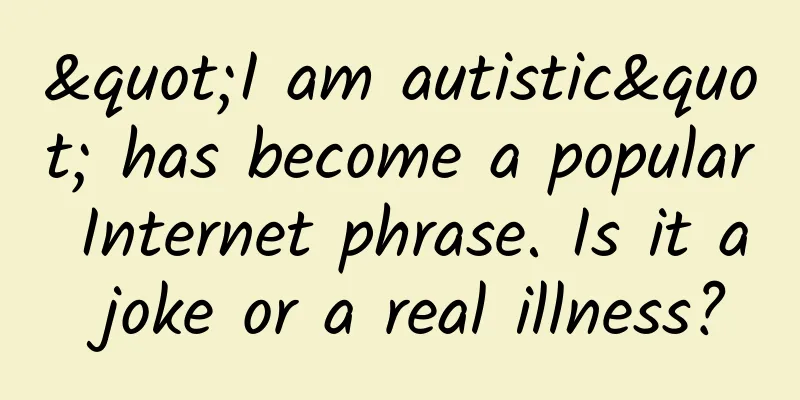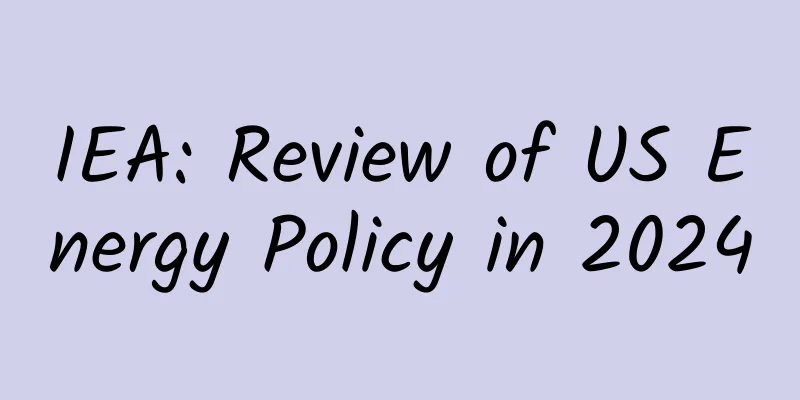A woman got nasopharyngeal cancer just because she ate this dish frequently! Many people eat this dish every day...

|
Expert of this article: Hu Zhongdong, Chief Physician and Associate Chief Physician of Health Management Center, Changsha Third Hospital When it comes to cancer, everyone is afraid of it. Little do people know that many cancers are actually caused by bad lifestyle habits. It is reported that a woman who ate salted fish every day was diagnosed with nasopharyngeal cancer. The disease may not have any symptoms in the early stages. People with blood in their mucus or hearing loss should be careful. News screenshots According to the global cancer epidemiological statistics of the International Agency for Research on Cancer, there will be an estimated 133,000 new cases of nasopharyngeal cancer and 80,000 deaths worldwide in 2020, of which about half of the cases and deaths are in my country. How terrible is nasopharyngeal cancer? How can we prevent it? Let's learn together... What is nasopharyngeal cancer? Nasopharyngeal carcinoma is a malignant tumor originating from the nasopharyngeal epithelial tissue. It is usually highly malignant, grows rapidly, and is prone to distant metastasis in the late stages of the disease. Its occurrence is mainly related to factors such as EB virus infection, diet, environment and genetic susceptibility. The age of onset of nasopharyngeal carcinoma is mostly seen in people aged 30 to 60 years old. It is more common in men than in women, with a male to female ratio of about 3:1. Copyrighted images from the gallery, unauthorized reproduction, please contact the original author What are the symptoms of nasopharyngeal cancer? In the early stages of nasopharyngeal cancer, there may be no symptoms. As the disease progresses, patients may experience nasal congestion, blood in mucus (especially be careful if blood is found in the mucus after aspiration), tinnitus, stuffy ears or hearing loss (especially if it occurs in one ear, be more vigilant). If cranial nerves are damaged, patients may also experience headaches, double vision, facial numbness, etc. 80% of patients present with a painless neck mass when they seek medical attention. For patients suspected of NPC, nasopharyngeal endoscopy can be performed in the early stage. If pathological diagnosis of NPC is confirmed, imaging diagnosis and evaluation are also required. What are the main risk factors for nasopharyngeal cancer? The main factors affecting nasopharyngeal carcinoma include the following: 1► Epstein-Barr virus infection In areas with a high incidence of nasopharyngeal carcinoma, more than 90% of nasopharyngeal carcinomas are associated with Epstein-Barr virus infection. Epstein-Barr virus can be transmitted through saliva, and infection often occurs in infants and young children. 2► Family history of nasopharyngeal carcinoma Genetic epidemiological studies on nasopharyngeal carcinoma show that 68% of the pathogenic factors of nasopharyngeal carcinoma are related to genetic factors. 3► Likes pickled foods The mechanism by which pickled fish induces nasopharyngeal cancer is mainly related to nitrosamines, which are highly genotoxic and carcinogenic. Pickled foods such as salted fish, bacon, and pickled vegetables contain N-nitrosamines, a strong carcinogen. 5► South China is more prone to About 80% of nasopharyngeal cancer cases in the world occur in China, mainly in the south, especially in Guangdong. Other provinces with high incidence include Guangxi, Jiangxi, Hunan, Fujian, Hainan, etc. 4► Bad habits such as smoking Cigarettes contain carcinogens, which irritate the oral and nasal mucosa during smoking, making it easier for the Epstein-Barr virus to invade and increasing the risk of nasopharyngeal cancer. Many people may ask: If a single positive result in the EB virus serological test report indicates nasopharyngeal cancer, does it mean that the patient has nasopharyngeal cancer? EBV test positive Is it definitely nasopharyngeal cancer? EBV can coexist peacefully with the human body and remain dormant for a long time. However, once it is activated and replicates rapidly, it can cause disease. In the screening of nasopharyngeal carcinoma, Epstein-Barr virus serological antibody detection is an important indicator for initial screening. However, a positive result of Epstein-Barr virus antibody does not necessarily mean that you have cancer. Copyrighted images from the gallery, unauthorized reproduction, please contact the original author If nasopharyngeal carcinoma is ruled out, it is also best to have regular check-ups. If Epstein-Barr virus antibodies continue to increase, it indicates a high risk of cancer. Paying attention to the symptoms of the nasopharynx and actively screening can improve the diagnosis rate of early nasopharyngeal carcinoma. How to prevent and treat nasopharyngeal cancer? About treatment—— Due to the complex anatomy of the nasopharynx, surgical treatment is not suitable. In addition, most nasopharyngeal carcinomas are highly sensitive to radiotherapy, so radiotherapy has become the main treatment method for nasopharyngeal carcinoma. Early-stage nasopharyngeal carcinoma can achieve good results after radiotherapy, and the 5-year survival rate can reach over 90%. The standard treatment for advanced and late-stage nasopharyngeal carcinoma is synchronous chemoradiotherapy. After comprehensive treatment, the 5-year survival rate of these patients can reach 60%~70%. About prevention—— The incidence of nasopharyngeal carcinoma is related to genetic susceptibility, Epstein-Barr virus infection, environmental and lifestyle factors, and is caused by the combined effects of internal and external factors. 1. Pay attention to your diet and living habits. It is recommended to quit smoking and drinking, and reduce the intake of pickled foods, such as salted fish, pickled meat and pickled vegetables. Copyrighted images from the gallery, unauthorized reproduction, please contact the original author 2. Pay attention to food hygiene, use public chopsticks, and prevent Epstein-Barr virus infection. 3. Be optimistic, exercise actively and improve your physical fitness. The WHO Guidelines on Physical Activity and Sedentary Behavior require healthy adults to achieve a minimum basic amount of exercise of at least 150 minutes of moderate-intensity exercise or 75 minutes of vigorous-intensity exercise per week. 4. High-risk groups, especially those living in high-incidence areas and those with a family history of the disease, may reduce the risk of nasopharyngeal cancer by undergoing nasopharyngeal cancer screening as early as possible. |
Recommend
Weibo Marketing: 3 tips to help you follow the hot topics on Weibo!
Whether you can capture Weibo hot spots in time i...
300 days after the new online car-hailing policy, Didi and others’ 6-year roller coaster ride has not yet reached the end
On November 1, 2016, the Interim Measures for the...
6 major points, briefly analyzing Weibo promotion methods!
Weibo is one of the most popular and active socia...
Can load-bearing walls be demolished? Demolishing the wrong wall can have serious consequences!
Recently, a resident in a residential area in Har...
Staying at home feels good for a while, but staying at home all the time makes you feel depressed? If you don’t want to become emo, please keep this guide
Expert of this article: Fu Lu, Master of Neurophy...
Why do I feel that online education platforms are unreliable?
Youcan wrote in the front: This article is an ana...
How long does it usually take for a submitted Baidu Smart Mini Program to be reviewed and approved?
Q: How long does it take to review a Baidu Mini P...
How to increase website user activity by attracting new users and promoting activation
User activity is an eternal pain in the hearts of...
Congratulations! The “divine arrow” carries the “Shenzhou 16” to the Tiangong!
May 30 Application and development stages of Chin...
The correct way to “value” social apps
“This is a social APP that will subvert WeChat!” ...
15,000 applications and 1 billion ecological devices, pure Hongmeng completely rewrites the mobile phone operating system market landscape
On October 22, at the Huawei HarmonyOS Night and ...
Analysis of "background invalid animation" behavior in Android
When an Android App is put into the background, a...
Choosing an enterprise-level mobile platform: an independent platform or an integrated platform?
The rapid development of mobile Internet not only...
Exploring the Principles of Automation and Optimization Practice
Overview of Automata Programmers who use Linux de...
JDRead Review: Highly Cost-Effective E-book with Deep Localization Customization
As one of the few products in China that can comp...









